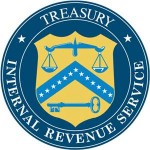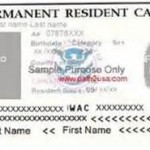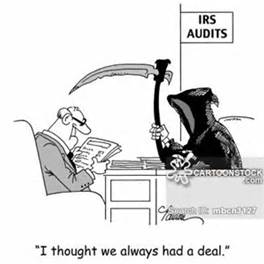… has come and passed. A new phase has just begun, and the length of its “season” is entirely up to each, individual person involved. Are you involved? Maybe; maybe not. Let’s find out.
 The somewhat magical day cited in the title is the day that the U.S. Internal Revenue Service started accepting electronically filed individual income tax returns for the tax year 2015. It is often considered to be the start of “tax season.”
The somewhat magical day cited in the title is the day that the U.S. Internal Revenue Service started accepting electronically filed individual income tax returns for the tax year 2015. It is often considered to be the start of “tax season.”
For you, dear readers, who are not considered to be “U.S. Persons” for U.S. Income Tax and U.S. Foreign Bank Account Reporting (FBAR) purposes, this article may seem boring. Still, you might want to browse it to see whether, unbeknownst to you, you may be a “U.S. Person.” As times change, so do rules.
During this new “season,” I’ll be pumping out articles that, hopefully, assist those of you who are ensnared in the IRS’ tax trap. This will be the first.
AM I TRAPPED?
As I am wont to repeat, “With taxes, there are no simple answers.”  Whether or not you are “trapped” is another question that earns the repetition. Let’s cut to the chase and see who are considered to be “U.S. Persons” with U.S. income tax responsibilities.
Whether or not you are “trapped” is another question that earns the repetition. Let’s cut to the chase and see who are considered to be “U.S. Persons” with U.S. income tax responsibilities.
For U.S. Income Tax purposes, a “U.S. Person” is anyone who meets one of these definitions regardless of where they physically reside in the world:
- Any citizen of the United States (yes, that includes dual-citizens and
 multi-national citizens who have U.S. citizenship as one of the citizenships they enjoy, and even “anchor babies” born in the U.S. to Non-U.S. citizens who may or may not have moved back to their parents’ homeland);
multi-national citizens who have U.S. citizenship as one of the citizenships they enjoy, and even “anchor babies” born in the U.S. to Non-U.S. citizens who may or may not have moved back to their parents’ homeland); - Any United States Resident Alien (Non-U.S citizens who have been
 admitted into the U.S. for residency [aka “Green Card” holders] who have not formally surrendered their residency status – even if your “Green Card” has expired, if you did not formally surrender it to the U.S. Government, you are still considered to be a “U.S. Person” for U.S. Income Tax purposes);
admitted into the U.S. for residency [aka “Green Card” holders] who have not formally surrendered their residency status – even if your “Green Card” has expired, if you did not formally surrender it to the U.S. Government, you are still considered to be a “U.S. Person” for U.S. Income Tax purposes); - Any United States Nonresident Alien who receives income from a
 source within the U.S. (Non-U.S. citizens who receive compensation for labor or services performed in the U.S., who receive interest, dividends, royalties, rental income, capital or ordinary gains, and most other types of income that is derived from a source within the U.S.)
source within the U.S. (Non-U.S. citizens who receive compensation for labor or services performed in the U.S., who receive interest, dividends, royalties, rental income, capital or ordinary gains, and most other types of income that is derived from a source within the U.S.)
Of course, it’s prudent to mention at this point in the article that even though income tax treaties or other legal remedies in use to prevent  “double taxation” of a “U.S. Person’s” income by two (or more) countries do exist and are beneficial, none of them relieve the “U.S. Person’s” responsibilities for complying with the U.S. Internal Revenue Code. The truth of the matter is: a tax treaty doesn’t alleviate a tax burden – it merely decides on an internationally legal basis just which country gets to impose that burden.
“double taxation” of a “U.S. Person’s” income by two (or more) countries do exist and are beneficial, none of them relieve the “U.S. Person’s” responsibilities for complying with the U.S. Internal Revenue Code. The truth of the matter is: a tax treaty doesn’t alleviate a tax burden – it merely decides on an internationally legal basis just which country gets to impose that burden.
AM I REALLY TRAPPED?
Are you? Well, again, maybe you are and maybe you aren’t (it’s  not simple). Every “U.S. Person” has U.S. Income Tax responsibilities to some degree. There are those who legally don’t file income tax returns and don’t pay income taxes. Still, they have the responsibility to make sure that they are, indeed, a member of that “carefree group.”
not simple). Every “U.S. Person” has U.S. Income Tax responsibilities to some degree. There are those who legally don’t file income tax returns and don’t pay income taxes. Still, they have the responsibility to make sure that they are, indeed, a member of that “carefree group.”
So, too, it is with those “U.S. Persons,” who may not owe any taxes  this year or in years past, but are still required to file a U.S. Income Tax return. These lucky “non-taxpayers” must show the IRS that the income they received during the tax year is not subject to U.S. income taxation. This they do by a mandatory filing of their U.S. Income Tax return – that’s their responsibility.
this year or in years past, but are still required to file a U.S. Income Tax return. These lucky “non-taxpayers” must show the IRS that the income they received during the tax year is not subject to U.S. income taxation. This they do by a mandatory filing of their U.S. Income Tax return – that’s their responsibility.
MANDATORY THRESHOLDS
Determining whether or not you must make a mandatory tax return  filing generally depends on how much gross income you received. The IRS publishes an annual table that lists the gross income threshold beyond which a mandatory tax return filing is triggered. Luckily, it’s adjusted annually for inflation and other factors that tend to lessen a U.S. dollar’s purchasing power.
filing generally depends on how much gross income you received. The IRS publishes an annual table that lists the gross income threshold beyond which a mandatory tax return filing is triggered. Luckily, it’s adjusted annually for inflation and other factors that tend to lessen a U.S. dollar’s purchasing power.
Remember, “not simple”! The threshold amounts vary, and  are set based on factors such as a taxpayer’s age (over or under 65 years old), a taxpayer’s filing status (filing Single, Married Filing Jointly, Married Filing Separately, Head of Household, &c.), and the type or source of income (income such as that exempt from taxation by statute, and Social Security benefits that are computed as being non-taxable).
are set based on factors such as a taxpayer’s age (over or under 65 years old), a taxpayer’s filing status (filing Single, Married Filing Jointly, Married Filing Separately, Head of Household, &c.), and the type or source of income (income such as that exempt from taxation by statute, and Social Security benefits that are computed as being non-taxable).
To top it all off (why, oh why can’t these things be simple?), there are  types and sources of income that have the exact opposite effect as that stated above. If you are a recipient of these types and sources of income, all that threshold business goes down the drain. These recipients must make a mandatory tax return filing regardless of any other circumstances.
types and sources of income that have the exact opposite effect as that stated above. If you are a recipient of these types and sources of income, all that threshold business goes down the drain. These recipients must make a mandatory tax return filing regardless of any other circumstances.
THEN, THERE’S THE REST OF US
 Everyone else, I’m afraid, may very well be trapped. There are any number of other circumstances that may mitigate tax return filing and the payment of taxes (NOT SIMPLE!), but generally speaking, the rest of us are members of that prestigious group of “U.S. Persons” known as U.S. Taxpayers. It’s a fact of life.
Everyone else, I’m afraid, may very well be trapped. There are any number of other circumstances that may mitigate tax return filing and the payment of taxes (NOT SIMPLE!), but generally speaking, the rest of us are members of that prestigious group of “U.S. Persons” known as U.S. Taxpayers. It’s a fact of life.
As I like to tease those who ask me, “Why didn’t you just retire? And  why, for heaven’s sake, a Certified Public Accountant?” my response is simply “Job Security.” I retired from the U.S. Navy at a relatively young age, and my enjoyment of food, shelter, and the other basics of life spurred me on to another career. Knowing that the only sure things in life are death and taxes, and not wanting a career as a mortician, the choice was rather obvious.
why, for heaven’s sake, a Certified Public Accountant?” my response is simply “Job Security.” I retired from the U.S. Navy at a relatively young age, and my enjoyment of food, shelter, and the other basics of life spurred me on to another career. Knowing that the only sure things in life are death and taxes, and not wanting a career as a mortician, the choice was rather obvious.
Thanks for your article! I too wish it were….just simple.
Hi Byron – While I have the “luxury” to complain about the complexity of the tax code as an individual taxpayer myself, I must temper that angst with the knowledge that it’s my “bread and butter.”
Without that huge mess called the Internal Revenue Code, many of us CPAs and others would be both ununemployed and unemployable. 😆
Hi Paul –
I had a rude awakening to the potential nightmare posed by FATCA last month while in the Philippines. I attempted to open a bank account in my name into which the monthly rental deposits from our rental property in Manila will be deposited by the new property manager, a distant relative.
Previously, the bank account was jointly in the name of another relative, but he was later dropped (fired) due to inconsistencies (embezzlement).
As explained to me confidentially by the bank official at a certain bank I visited in Manila that if I were to open the bank account in my name, as a U.S. citizen taxpayer, I have to pay taxes to the IRS on assets held in a foreign financial institution as required by FATCA.
The bank official therefore suggested that the account be opened in the Filipino property manager’s name in order for me to avoid paying taxes to the IRS. I had some misgivings about this, but I reluctantly agreed.
Further, the official suggested that for my “peace of mind”, a legal instrument had to be executed through an attorney whereby the Filipino account holder agrees and understands that the contents of the bank account, regardless of whose name it is under, does not belong to him. Supposedly, this would preclude the possibility of him opening another account in his wife’s or relative’s name without my knowledge. This, we also did.
My point is, the bank official knows the real story. He knows that the money in the savings account belongs to a U.S. citizen, even though the bank account is in the Filipino’s name. The deposit book is in the property manager’s name.
The bank, however, gave me the bank’s ATM card. The debit card allows me access to the account from anywhere in the world. The user name and password is unbeknownst to the property manager. His only connection with the account is at month’s end when he is supposed to deposit the rental receipts he collects from tenants each month, less expenses for maintenance and repairs.
What is your feeling about this set up, Paul? Should I be concerned about FATCA finding out the real story at some point in time? Or, should I be more concerned about the property manager who may claim in the future that the money in the bank is legally his because, afterall, it is in his name?
Hi John –
ARGH!
I believe that you were the victim of an ill-informed bank employee seeking to make additional business for the bank at your expense.
As a U.S. citizen and taxpayer, all you are required to do, in addition to the routine administrative paperwork for opening a bank account with a bank in the Philippines, is to provide the bank with a completed, signed, and dated Form W-9, Request for Taxpayer Identification Number and Certification.
The bank needs only to know your U.S. Tax Identification Number (SSAN for U.S. citizens). They, in turn, are required to report the existence of your account and any income that they provide to you based on the account’s assets (e.g., interest they pay you), generally on an annual basis. That’s your only bank-related responsibility for F.A.T.C.A.
The bank may require you to have a written instrument, in which you authorize another person or entity to make deposits on your behalf, on file with them. This is standard banking policy, unrelated to F.A.T.C.A.
As for any further responsibilities you have, concerning your Philippine bank account, with the U.S. Treasury and the IRS, they are the responsibilities of the individual taxpayer alone.
1) If the aggregate (total, combined) value of all of your Non-U.S. financial accounts held by Non-U.S. financial institutions exceeds USD $10,000 at ANY TIME during a calendar year (even if for only one day), then you would be required to electronically file a FinCEN Form 114, aka FBAR, with the U.S. Department of the Treasury, with the filing deadline being June 30th of the year immediately following the year being reported. (E.g., June 30, 2016 for FBARs reporting calendar year 2015 account values.) No extensions of time to file an FBAR are allowed or accepted. FBARs are filed separately, and are not included with your income tax return.
2) If the value of your “specified assets” held “offshore” exceed certain thresholds specified by the IRS, then you may be required to file a Form 8938, Statement of Specified Foreign Financial Assets with your income tax return. This statement identifies your “specified” assets held overseas, their values, and any income that was derived from them. “Specified” assets, in your case, would include the bank account, but NOT the real property you own that generates the rental income.
My suggestion, late as it may be, is to establish a Philippine bank account of your own (PhP or USD account, whichever suits your preference for pain), provide the bank with the Form W-9 and the written instrument for deposits mentioned above, and MOST IMPORTANTLY, close that joint account.
Also, as a safeguard, require your property manager to provide you with a full accounting of the finances of his managing your properties on a periodic basis (quarterly at the bare minimum, monthly highly preferred) and strictly hold your property manager to that requirement. The reasons:
1) You will need the documentation at “tax time” to report your rental income properly;
2) You will need some form of “backup” documentation to verify your bank deposits; and
3) You may need the additional information this procedure provides to assist in any possible required reporting that you may have to make to either the U.S. Department of the Treasury and/or the IRS.
As for just what you should be concerned about – be proactively concerned about everything. When it comes right down to where the “rubber meets the road,” it’s your neck alone that is stretched out, and only you will be open to undesirable consequences, be they the result of problems with any government, with any bank, with your property manager, and with your otherwise “treasure trove” that might appear lacking or wanting.
Good luck, John.
Hi Paul –
Thanks so much for your explanation and well-intended suggestions. I have always had you in the back of my mind as the go-to-pro when tax-related problems get complicated. I will contact you privately, of course, when the need arises.
My main concern afterall is not with FATCA, nor even FBAR. What is making me nervous now, after reading your explanation, is the required filing of Form 8938 with my income tax return when the off-shore bank account exceeds “certain thresholds specified by the IRS”. What is the amount of that threshold? Does this mean I have to pay taxes on the amount exceeding the threshold year after tax year while the account continues to grow?
Now, let me throw you a curveball, Paul. Would I be absolved of my tax responsibilities as a U.S. citizen and taxpayer if the bank account is in my name as a Filipino citizen? (I hold both passports)
Hi Paul –
Regarding my question above, “what is the amount of that threshold”, I just read your comment to Randy regarding exceeding aggregate value of specified assets. I am nowhere near that amount yet.
Hi John – I see in a later comment that you found the threshold amounts for your current situation in my response to Randy. So, I’ll just emphasize that you should keep an eye on the aggregate value of all Non-U.S. “specified” assets each year to make sure that you remain in compliance for “filing or forgetting” the Form 8938. Remember, better safe than sorry! ?
As for your other question – SORRY. As with FBARs, you would be reporting “specified” assets that you own (directly or indirectly), that you have an interest in, or that you have “signature authority over.”
I strongly recommend that you avoid “playing the passport game” when filing income tax returns and FBARs. The crux of the matter is focused on the taxpayer and not on the assets, themselves.
As a U.S. citizen, you have the obligation for reporting regardless of how the assets that are “connected” to you are arranged or administered. In your scenario, about the only way to be relieved of the obligation would be your (and your wife’s, if you jointly file returns and reports) renunciation of U.S. citizenship. Doing so, however, will open up a new, different can of tax worms that you don’t need to experience.
As is, just simply following the rules is the easiest and safest way to proceed.
I should add, Paul, that even though I wrote the above comment in the past tense, the whole thing is hypothetical. It is not a done deal. I will revisit the issue again when I return to the Philippines. Still, I would like to know your opinion. Thanks.
The only problem I see is the money ever getting as far as the account. Perhaps we could have a competition to come up with the best excuses, I’m sure your relative could win every time.
Hi Gari – you’d be surprised at the number of potential “mishaps” that could occur in getting that revenue safely deposited and accurately posted to a bank account. They’re not limited to the involvement of the “principals” in the scenario. The number of hands that could “put the touch” on those funds are roughly equal to twice the number of persons having knowledge of, or “getting wind of” the existence of those funds. 😆
Whoa! Heart be still.
Hypothetical = Hope! If you have not engaged a bank account with someone other than yourself being the sole owner (outside of your loving and trustworthy Asawa, of course) Then my suggestions are simple: DON’T DO IT.
Follow the volume I wrote in response earlier, and you can’t go too far wrong.
If you need a little “pro” assistance with this matter, I’m available via private message.
John,
You would only have to pay taxes if the account was over $50,000.00 at the end of the tax year or more than $75,000.00 anytime during the tax year. I think i would be more worried about him keeping more money than needed for Maintenance/Repairs. Are you planning on coming back again soon? Take care.
Hi PD – While what you say is basically true for a “specified U.S. Person” (in this case, a U.S. citizen) whose residence and “tax home” is located within the U.S. and who’s filing an individual income tax return using the filing status of “Single,” the permutations of those three variables in the scenario result in differing threshold amounts.
In John’s case, he holds U.S. citizenship, resides and has his tax home within the U.S., and would most likely file his income tax return employing the filing status of “Married Filing Jointly.” In this event, the threshold amounts that trigger a mandatory filing of Form 8938 and possibly incur taxation on the “specified” assets reported therein would be either:
a. the aggregate value of the “specified” assets exceeded $150,000 at ANY TIME during the tax year; or
b. the aggregate value of the “specified” assets exceeded $100,000 on the last day of the tax year.
DISCLAIMER:
😆 — Tax Consulting is dangerous – Don’t Try This At Home — 😆
Hi Randy –
For me, returning to the Philippines is the plan, pretty much like the swallows coming back to Capistrano every year. 🙂
https://www.youtube.com/watch?v=BXyKe43pE2Y
Paul,
I may have missed your reply but did you say someone does your taxes? If so who does your taxes? How much do they charge?
Do they just do high profile taxes like yours and Trumps?
Hi Rusty – My personal income tax returns are prepared by what I consider to be the leading U.S. Income Tax authority for those residing outside of the U.S., who focus on domestic and international tax issues and serving U.S. expatriates and residents alike:
Keating & Chillingsworth, Ltd.
Of course, being the managing member of K&C, Ltd., I am a little biased. 😆
Hi Paul –
For some unfathomable reason, the name, “Keating & Chillingsworth”, particularly with its use of the ampersand symbol, somehow evokes for me a quaint English trading post of a bygone era of British raj, where men in heavily-starched khakis and riding boots congregate at a mahogany paneled bar tended by a refined, turbaned Indian man.
You’ve come a long way, baby! LOL
Hi John – All we have to do is grow and export tea, then the picture would be complete! 😆
Keating? I’ve heard of that name before. Isn’t that a huge billion dollar corporation? Aren’t they involved in a multibillion dollar international scandal? Something to do with writing off pink doilies.
Hi Rusty – Maybe your thinking of John McCain’s friends, the “Keating Five” incident, and of the Lincoln Savings and Loan Association’s Chairman, Charles H. Keating, Jr.
No friend, no association, and no relation. We trust banks and S&Ls less than we do the IRS, and trust competent money managers more than bankers. Afterall, it was the $3B+ failure of Lincoln that triggered off the big S&L scandal of the late ’80s – early 90’s.
All professional interaction with banks, credit unions, and S&Ls by Keating & Chillingsworth, Ltd., to date, has been of a depository nature alone, at arm’s length.
While we’ve been approached by several banks to form strategic alliances with the purpose of issuing bank debit cards containing clients’ refunds, and for arranging refund-backed money advances and signature loans to clients by the banks, we have forcefully declined each proposed endeavor to keep our name and reputation spotless.
After all, it only takes one “aw, $#!+” to wipe out ten “attaboys.” 😉
Hi Paul –
Thanks again for the advice. However, renouncing U.S. citizenship to avoid paying taxes is the farthest thing in my mind.
I will file Form 8938 with my tax return when I hit that threshold and pay my taxes accordingly.
I just started getting all of our stuff together for our tax filing. I will have to add a W-9 to my income requirements. I will also have to file a FBAR because we transferred money to buy our second car here. I do not see it being that much more difficult filing here as to filing in the states, at least in my case.
Hi Gary – The Form W-9 is provided directly to the requesting party (e.g., a Philippine bank) only, and at their request alone. Otherwise, it’s a forgotten form that taxpayers never file with the IRS or include with their income tax returns.
FBAR filing is all electronic now, performed on the BSA (Bank Secrecy Act) website of the U.S. Department of the Treasury. It’s very straightforward, and you should not have any difficulties e-filing your report. Just remember to e-file it on or before June 30, 2016, and you won’t go wrong.
Talking about form w9 can you answer the following. I asked the AZ retirement system to send me a form so I could adjust my withholding tax. They semt me form w-9. Is that the right form to reduce my tax percentage? They say it is. Is it?
Also instead of getting a 1099R from Arizona retirement they’ve sent me form 1042-S. Which I’m not sure is meant for me in my case.
Hi Rusty – Ah, taxes! How simple they are – NOT! 😆
Here is my recommendation for helping make the problems go away:
1) File Form W-9: This form will certify to the ASRS that you are a U.S. citizen and will provide the ASRS with your valid tax identification number (your SSAN). It should remove any doubt about your citizenship status that ASRS may have.
2) File Form W-4: This form is used by Section 401(a) retirement plan beneficiaries to change income tax withholding amounts. ASRS is a Section 401(a) plan.
3) Inform the ASRS that, as a U.S. citizen, you should be receiving Form 1099-R each January and NOT Form 1042-S. Refer them to page 24 of the 2016 edition of the “Arizona State Retirement System Road to Retirement Guidebook.”
Note: Both Form W-9 and Form W-4 are available as “fill-in pdf forms” on the IRS website at web address: https://www.irs.gov/forms-pubs .
The ASRS is making itself vulnerable to possible civil action by the IRS, to include heavy fines, by not supplying both the IRS and the taxpayer with requisite information provided on the correct form. If their actions are deliberate or grossly negligent, the charges and fines increase dramatically.
I’d be willing to bet that some low-level employee or intern without much knowledge of federal income taxation and compliance responded to your request.
Gary – I should add that an FBAR filing would be required only if you transferred the second car purchase funds into a Philippine (or other Non-U.S.) financial account that you either own, have an interest in, or have signature authority over. Transferring those funds directly from a U.S. financial institution to the car seller’s account, or delivering cash at the point of sale without those funds ever being posted in your personal Non-U.S. financial account, will not trigger the required FBAR filing.
(You are most likely aware of this, but other readers ……)
Yes, I transferred into our BPI account. We did it the same way we transfer all of our money from the states. We write checks to ourselves and wait the 21 days for it to clear. Call me cheap, but it’s a free money transfer this way.
You’re not cheap, Gary. You’re economically minded, and knows how to use those tools called “money.”
Besides, “free” is good.
(After all, one doesn’t give the hardware store owner a 5/16″ socket as a fee when purchasing a metric spline wrench set. Why give a banker or currency transfer agency a handful of Pesos just so you can receive some Dollars? 😆 )
We do the same at BPI. Except we have to wait 25 days. The check actually clears after 7 days but the bank has us wait 25 days.
Rusty
The good thing is that BPI credits your account immediately but it is just not available. You will earn interest on the same money in both accounts until the check clears back in the states. It is not much but I like to think that they are paying me.
Thanks, GaryM I didn’t know that. It may not be much but that’s OK.
Hey Paul, I’m probably screwed reading about FBAR and FATCA after getting an email from BPI two days ago regarding FATCA compliance. You see, I have never reported my foreign accounts since I started working here in the US since mid-2010 (still on H1B); I had been using TurboTax to prepare and file my taxes and the only question the application asked is about having a foreign financial account exceeding $10k. I assumed those were only bank accounts, and total balances of all my PH bank accounts never reached even half of $10k. Now I’m getting nightmares thinking about “aggregate of maximum value of accounts”. I have a BPI savings account to where I remit from my US account; then I transfer that to my BPI Direct checking account (BPI Direct which is not really an option on online remittance service I use). All those transfers all these months made me realize that both accounts had been having maximum amounts so an aggregate makes it look like I have had twice more than what I have. I’m still requesting from BPI for my past year statements so I can get a more accurate picture but seeing this current year’s transactions I think it would not compute $10k yet. The thing I’m most worried about is that I have four insurance policies (Philam Life and Sunlife) with cash value with me as either policy holder or authorized signatory. With the insurance policies, the total cash values are probably P100k-ish but not sure if I should report the maturity or face value instead which will be way more. I also have fund accounts with PhilamFunds which amounts to value of more or less P300k. I also have been paying for mortgage on two real estate PH properties, do I need those reported too?
How screwed am I? 🙁 Do I need to report everything from 2010? What do you recommend should my next steps be? I understand that there is a deadline of June 30 this year for filing.
Thanks,
Jeda
Hi Jeda – Firstly, DON’T PANIC!
Your concerns and situation are much more common that you can imagine. Your position is not unique and you are among many thousands of taxpayers with similar concerns.
To make things a little easier to digest, let’s break things down to separate issues (we’ll take them in the order that they appear in your comment).
1. “Aggregate of maximum value of accounts” – Quite a confusing concept. In simpler terms, this phrase means the maximum total value of all accounts at one point in time. Not all accounts reach their “maximum value” on the same day of the year: different days = different values and different accounts = different values.
To determine the maximum, aggregate value of all accounts “occurring at any time during the year,” one should:
a) identify the value of each account on each day of the calendar year;
b) add the values of each account together for each date identified in a);
c) identify the date on which the total value of all accounts, determined in b), was the greatest; and
d) use the total value of accounts identified in c) for comparison with the USD $10,000 threshold amount.
Please note that “reasonable approximations” of account values are acceptable substitutes for the exact values. The Treasury Department understands that, in many cases overseas, exact, day-to-day account balances are not available to account owners. Similarly, the Treasury Department is smart enough to know when an approximation is not “reasonable.”
2. “Foreign financial accounts” – Not every account loosely connected to the world of finance is a foreign financial account. The true definition is derived from two other definitions: the definition of a “financial account” and the definition of a “foreign financial account.” Here are those definitions, as promulgated by the Treasury Department:
a) a “foreign financial account”: a foreign financial account is a financial account located outside of the United States.
Examples: an account maintained with a branch of a United States bank that is physically located outside of the United States is a foreign financial account. An account maintained with a branch of a foreign bank that is physically located in the United States is not a foreign financial account.
b) a “financial account”: a financial account includes, but is not limited to, a securities, brokerage, savings, demand, checking, deposit, time deposit, or other account maintained with a financial institution (or other person performing the services of a financial institution).
A financial account also includes a commodity futures or options account, an insurance policy with a cash value (such as a whole life insurance policy), an annuity policy with a cash value, and shares in a mutual fund or similar pooled fund (i.e., a fund that is available to the general public with a regular net asset value determination and regular redemptions).
3. “Should I report maturity or face value” – for insurance policies having a cash value, you should report the maximum cash value of each policy during the calendar year (generally, the cash value of the policy on the last day of the calendar year). Do not report the face value or the value at maturity.
4. “Do I need those reported too?” – The maximum value of the PhilamFunds accounts during the calendar year should be reported provided that the accounts are held outside of the United States.
The value of real property and the mortgage accounts attached to that real property are NOT reportable, regardless of the property’s location.
5. “How screwed am I?” – You’re not. You simply have to file your FBAR for calendar year 2015 by June 30, 2016; and make a decision about how to handle reporting for the calendar years of prior to 2015. All of this is predicated on whether or not you are considered, for FBAR reporting purposes, a “U.S. Person.”
Another definition – “U.S. Person”: (for individuals) A citizen or a resident of the United States. Determining whether a non-citizen is a resident goes to another definition – that of a “Resident Alien.” In short, a “resident alien” is a non-citizen who was lawfully admitted into the United States for permanent residence, or a non-citizen who meets the “substantial presence” test.
Being in the United States on an H1B visa, the determination of your status would fall under the “substantial presence” test. That would make you a “U.S. Person” for calendar years 2011, 2012, 2013, and 2014 (as well as 2015). For calendar year 2010, you would be considered a “U.S. Person” if you were present in the U.S. for at least 183 days.
I cannot make a recommendation here as to how you treat calendar years 2010-2014. I will say that the FBAR form (FinCEN Form 114) has a place on page 1 for explaining why an FBAR is being reported late. Among the reasons are:
– Forgot to file.
– Did not know that I had to file.
– Thought that account balance was below reporting threshold.
– Other (Please provide an explanation below).
Whether or not you file a late FBAR for calendar years 2010-2014 is totally up to you. My personal opinion of your situation (and nothing other than a personal opinion) is that an H1B visa holder filing late FBARs upon discovering that he/she had to file FBARs (and so noting it in an “Other” explanation for late filing that outlines your situation) wouldn’t be penalized for late filing.
Good luck.
Paul,
Thanks for the information. I now know that I was at least partially correct.
The last time I contacted AZRS I felt like saying can you please have a custodian contact me. Perhaps he/she knows what is going on. Instead I was polite and said something like ; “Oh, Thanks for all your help.”
I’ll fill out the W-9 as you said to do. I’d told the AZRS that I wasn’t applying for a TIN. So did I just need to sign the form and include my SS number. They responded by saying; “The ASRS can not provide assistance for completing tax forms. Please contact your tax specialists.” Good Grief.
So your now my tax specialists. The check is in the mail.